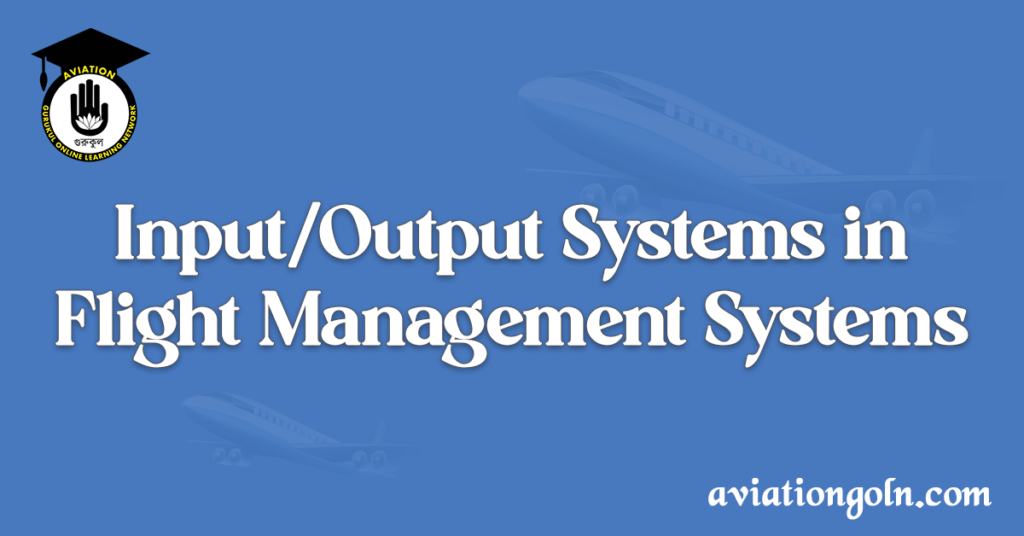The complexity of modern aviation operations requires advanced avionics systems to ensure the safe and efficient operation of aircraft. One of the most critical components in this ensemble is the Flight Management System (FMS). The FMS plays an instrumental role in aircraft navigation, guidance, and performance optimization. At the heart of this system is its ability to receive, process, and provide information – a feat achieved through its Input/Output (I/O) systems. This article will delve into the intricate world of I/O systems within Flight Management Systems, exploring their architecture, functionality, and significance in aviation operations.
1. Introduction to Flight Management Systems (FMS)
Before delving deep into the I/O systems, it’s vital to understand the broader framework of the FMS. A Flight Management System (FMS) is a specialized computer system that automates a multitude of in-flight tasks, reducing the workload on the flight crew. It aids in navigation, flight planning, performance computations, and optimizing routes based on multiple factors like weather conditions and airspace restrictions.
2. The Significance of I/O Systems in FMS
Input/Output systems are the bridges that connect the FMS to the outside world, be it pilots, sensors, or other avionic systems. The following points highlight their significance:
- Data Acquisition: The FMS requires real-time data like airspeed, altitude, and engine performance to function effectively. The I/O systems facilitate the gathering of this information.
- Pilot Interaction: I/O systems enable pilots to feed in flight plans, select navigation options, and interact with the FMS through interfaces like the Control Display Unit (CDU).
- Communication with Other Systems: Modern aircraft have several interconnected avionic systems. The I/O system ensures seamless communication between the FMS and systems like the Automatic Dependent Surveillance-Broadcast (ADS-B), Traffic Collision Avoidance System (TCAS), and weather radar.
3. Architecture of I/O Systems in FMS
The architecture of the I/O systems can be categorized into input interfaces, the core processing unit, and output interfaces:
- Input Interfaces: These comprise sensors, switches, and user interfaces. Examples include:
- Air Data Inertial Reference Units (ADIRU) – Provide data about aircraft’s velocity, altitude, and attitude.
- Global Positioning System (GPS) receivers – Offer precise position information.
- User input devices, like keyboards and touchscreens of the CDU, where pilots input flight plans and commands.
- Core Processing Unit: This is the heart of the FMS where all computations and decision-making processes occur. It receives data from input interfaces, processes it, and sends required information or commands to output interfaces.
- Output Interfaces: These are channels through which processed data or commands are dispatched. Examples include:
- Display systems such as Electronic Flight Instrument Systems (EFIS) or Primary Flight Display (PFD) which show navigation and flight data.
- Control systems like the auto-throttle and flight control system, which execute commands from the FMS.
- External communication systems, allowing the FMS to send data to or receive data from ground stations, other aircraft, or satellites.
4. Key Input Devices in FMS
Several devices play pivotal roles in feeding the FMS with the necessary data:
- Control Display Unit (CDU): This is the primary interface for pilots to interact with the FMS. They can input flight plans, select waypoints, and request performance calculations.
- Sensors: Multiple sensors measure parameters like temperature, air pressure, and engine thrust. These are vital for tasks like fuel optimization and route alteration.
- Databases: Modern FMS systems come with preloaded navigation databases that include data about airports, waypoints, and navigation aids. These databases are updated periodically to reflect changes in the aviation landscape.
5. Key Output Devices in FMS
The FMS communicates its calculations and decisions through:
- Displays: Flight information, navigation maps, and suggested routes are shown on cockpit displays, aiding pilots in their decision-making processes.
- Autopilot Systems: The FMS can directly interface with autopilot systems to execute specific maneuvers, adjust flight paths, or maintain altitude.
- Alert Systems: When there’s a discrepancy or an anomaly, the FMS can trigger visual or auditory alerts to grab the pilots’ attention.
6. Integration with Other Avionics Systems
The effectiveness of an FMS lies not just in its standalone capabilities but also in its interoperability with other systems. For instance:
- The FMS integrates with communication systems for real-time updates on weather and airspace restrictions.
- It works closely with surveillance systems like ADS-B and TCAS to ensure safe separation from other aircraft.
- Integration with engine management systems allows for fuel-efficient route planning and optimization.
7. Future Trends in FMS I/O Systems
With the rapid evolution of technology, the aviation industry is witnessing transformative changes:
- Touchscreen Interfaces: Traditional button-based CDUs might be replaced with intuitive touchscreen interfaces, making it easier for pilots to navigate through FMS functionalities.
- Artificial Intelligence (AI) Integration: AI can enhance the predictive capabilities of the FMS, enabling more accurate fuel prediction, route optimization, and anomaly detection.
- Augmented Reality (AR) Displays: AR can overlay vital FMS data on windshields or helmets, providing pilots with a seamless view of both the outside world and critical flight information.
8. Conclusion
The Input/Output systems of Flight Management Systems stand as the unsung heroes in the complex world of avionics. By facilitating seamless communication between pilots, sensors, and other avionics components, they ensure that modern aircraft can traverse the skies safely and efficiently. As technology continues to advance, the aviation world can look forward to even more sophisticated and integrated I/O systems, propelling the industry into a future of unparalleled efficiency and safety.
See more:

